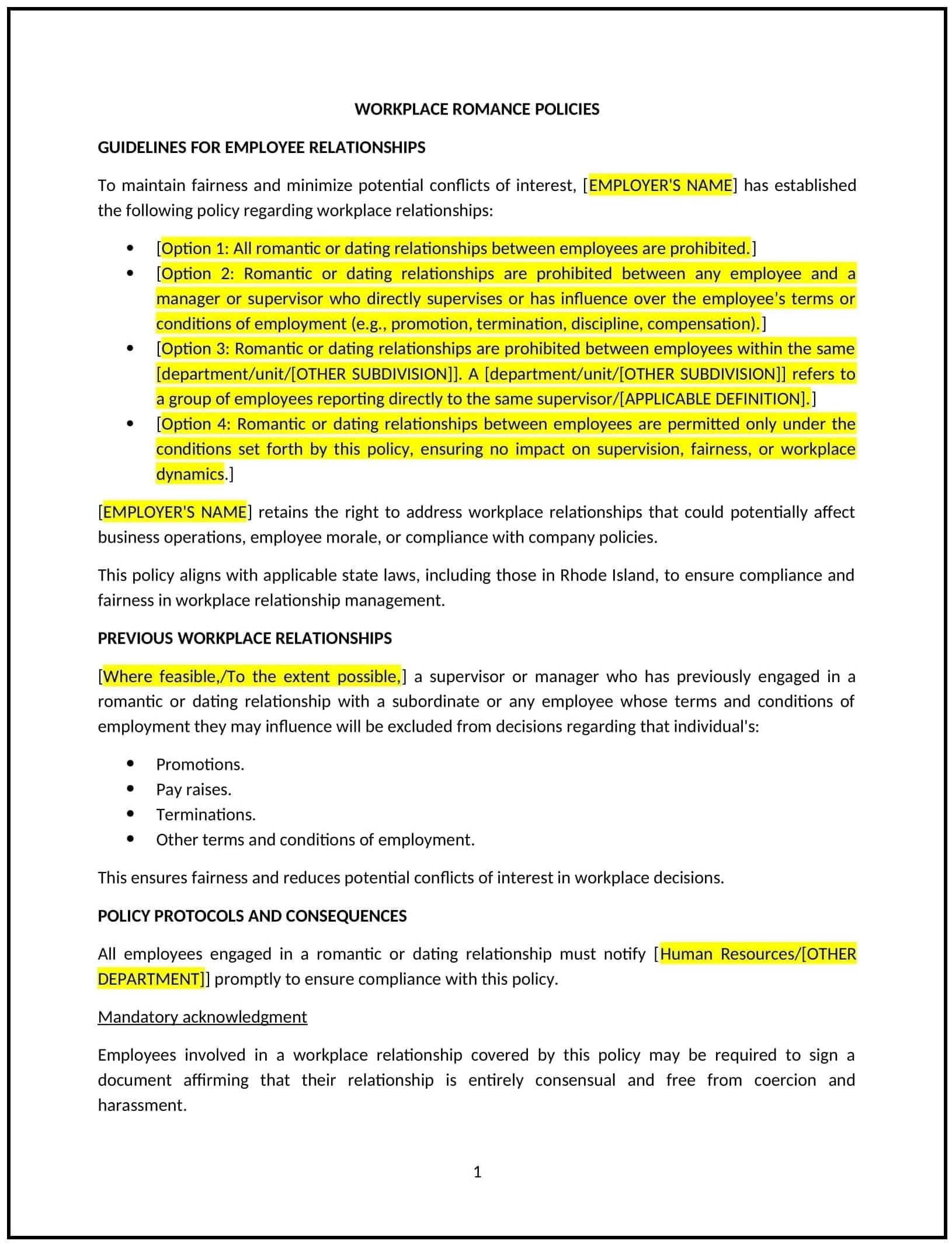Workplace romance policy (Rhode Island): Free template
Got contracts to review? While you're here for policies, let Cobrief make contract review effortless—start your free review now.

Customize this template for free
Workplace romance policy (Rhode Island)
This workplace romance policy is designed to help Rhode Island businesses establish guidelines for managing romantic relationships between employees. It outlines procedures for disclosure, conflict of interest, and maintaining professionalism.
By adopting this policy, businesses can promote a professional work environment, reduce conflicts, and protect against potential legal issues.
How to use this workplace romance policy (Rhode Island)
- Define disclosure requirements: Specify whether employees must disclose romantic relationships, particularly if one party is in a supervisory role.
- Address conflicts of interest: Outline steps for managing situations where a romantic relationship could create a conflict of interest.
- Maintain professionalism: Provide guidelines for ensuring that romantic relationships do not disrupt the workplace or affect other employees.
- Train managers: Educate supervisors on handling disclosures and maintaining a professional work environment.
- Review and update: Assess the policy annually to ensure it aligns with evolving business needs and employee expectations.
Benefits of using this workplace romance policy (Rhode Island)
This policy offers several advantages for Rhode Island businesses:
- Promotes professionalism: Encourages employees to maintain a professional work environment, reducing conflicts and distractions.
- Reduces risks: Minimizes the likelihood of legal issues related to favoritism, harassment, or conflicts of interest.
- Enhances trust: Demonstrates the business’s commitment to fairness and transparency in managing workplace relationships.
- Supports productivity: Ensures that romantic relationships do not disrupt workflow or affect team dynamics.
- Aligns with best practices: Offers a structured approach to managing workplace romances.
Tips for using this workplace romance policy (Rhode Island)
- Communicate the policy: Share the policy with employees and include it in the employee handbook.
- Provide training: Educate managers on handling disclosures and maintaining a professional work environment.
- Monitor compliance: Regularly review workplace interactions and address any issues promptly.
- Address conflicts promptly: Take corrective action if a romantic relationship creates a conflict of interest or disrupts the workplace.
- Update regularly: Assess the policy annually to ensure it aligns with evolving business needs and employee expectations.